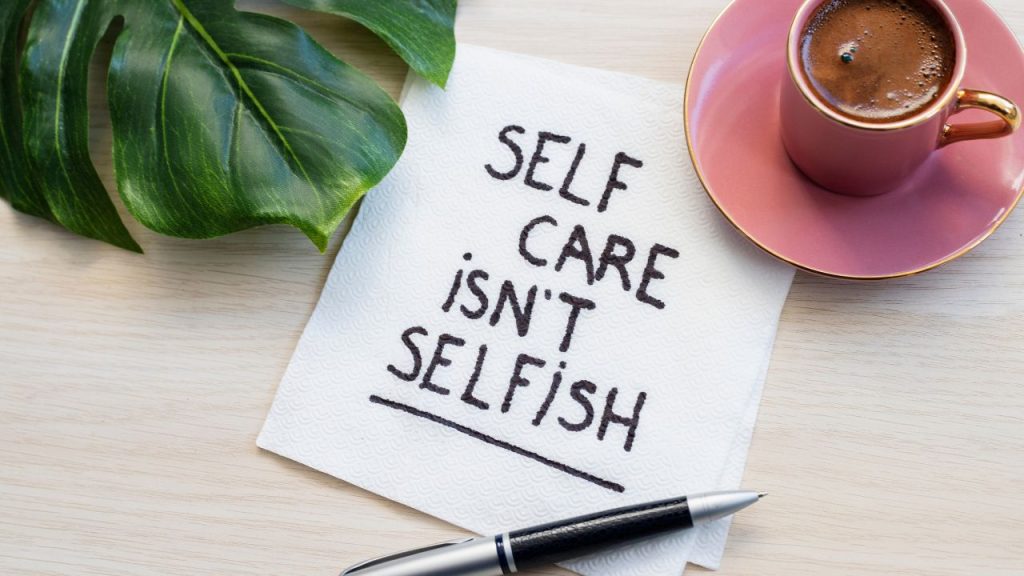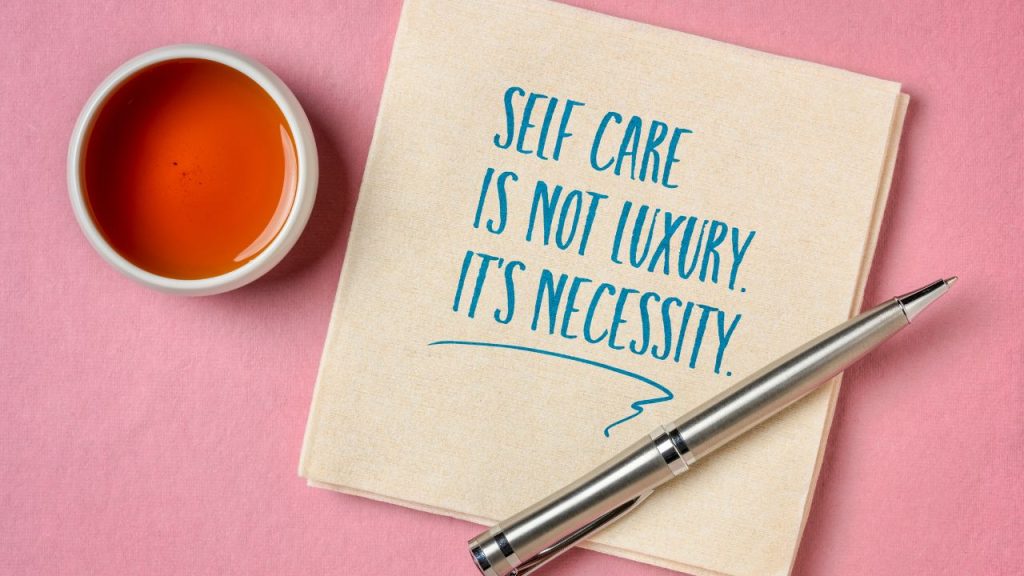When we hear “self-care,” many of us immediately think of ways to pamper ourselves with a day at the spa.
Taking care of oneself in this way may be beneficial, but self-care requires much more than just using certain procedures.
Taking care of yourself on all levels—emotionally, mentally, physically, and spiritually—can help you feel more at ease and in tune with yourself and your thoughts.
Self-care includes many actions that might improve one’s mental and physical well-being. The advantages it provides for one’s mental health are often neglected.
Some people are too busy, others just don’t want to do anything; there are also people who don’t know how to start.
So, this article aims to look at the notion of self-care and the advantages it has for one’s mental health.
A. What is Self-Care?

Self-care implies giving one’s complete attention to oneself.
Taking the time to rest or engage in things that please us is one of the most effective methods to improve our physical, mental, and emotional well-being.
Exercising, meditating, getting enough sleep, and pampering ourselves with spa days, bubble baths, and more are all examples of a self-care routine.
These activities can easily improve our self-esteem, decrease stress, and improve our general health.
B. Benefits of Self-Care for Mental Health

Some people’s definitions of “self-care” may be as simple as getting enough sleep each night or bringing a water bottle to work daily.
And it’s partly true, as maintaining our fitness via typical everyday activities may have a significant influence on our mental health.
By taking care of ourselves, we may greatly improve our mental health. However, you should know that it’s not enough to do something one day and then forget about yourself for a week.
If you do, let’s say, yoga every day, you will see the results faster: Your mental health will get better and your body will get stronger.
But if you do yoga once a week, constantly distracting yourself with gadgets and TikTok, then what’s the point?
It’s all about consistency and combining a few methods to achieve results.
Here are some of the top benefits of self-care for our mental health:
1. Lowers the Risk of Mental Health Disorders
Regular personal care has been demonstrated to positively impact mental health by reducing stress and increasing motivation.
It has clear advantages for mental well-being and cognitive performance. It also decreases susceptibility to several mental health disorders.
Furthermore, personal care may aid in the treatment of anxiety. Engaging in self-care activities also assists us in determining what is beneficial to our mental wellness.
2. Enhances Self Awareness
Those suffering from mental illnesses may benefit from enhanced self-awareness through self-care.
Self-awareness exercises may assist us in determining what we need to do for our benefit, alleviate the pain of mental disease or stress, or offer us some time to do what we love doing.
You may obtain all of these benefits by practicing a regular self-care routine.
Nonetheless, this does not indicate that self-care alone can independently treat mental or physical sickness.
While it may benefit those with mental health problems or chronic illnesses, studies show that many cannot successfully take care of themselves when their symptoms are at their worst.
3. Encourages Self Development
Self-care is vital because it encourages good relationships, rest, and relaxation, all of which benefit our health and happiness.
It also encourages us to engage in activities that boost our self-improvement.
Improvement enhances our sense of self-worth; getting better at what we love benefits our mental health to a great extent.
When we take care of ourselves, we can help our loved ones in ways we couldn’t previously.
4. Increases Resilience and Balance
Those who try to care for themselves become more resilient, which means that they are better equipped to recover from setbacks and deal with the strains of daily life and professional duties.
People who practice self-care may be able to achieve a better balance between their personal and professional life.
When we approach our health holistically, we increase our chances of having a healthy mind and body.
By maintaining a good balance between one’s duties and stressors, such as one’s profession, family, relationships, and personal needs, one can achieve greater results in life.
5. Improves Self-Esteem
When we attend to our wants and needs, our life becomes brighter and less stressful.
As people learn to recognize and accept their emotions while learning to manage them, their sense of self-worth grows.
When people discover their life’s path, they have a more accurate picture of their desires. The more attention we pay to ourselves, the better our self-esteem gets.
Find time for your loved ones, do the things you love, or just spend a day by yourself, and you will notice how your self-esteem will start to improve.
6. Stabilizes Relationships
Romantic relationships are a key source of emotional stability for many people.
While mutual reliance is essential for a good relationship, it may be tiring when one party depends on the other in everything.
Self-care aids both partners in identifying and meeting their individual needs in a relationship.
When both parties maintain their sense of self-worth, satisfaction, and enjoyment outside of the relationship, they can enjoy each other healthily and satisfactorily without feeling the need to put more pressure on themselves.
Understanding and controlling one’s emotions leads to improved communication skills, which opens the door to deeper relationships with others.
7. Makes One More Social
Humans are social beings. Even introverts, people who prefer to spend most of their time alone, need social interaction.
Socialization has plenty of benefits: It promotes a sense of safety, improves mental health, makes finding friends easier, and even lowers the risk of dementia.
But can you be socially active if you don’t take care of yourself? Not at all.
If you, let’s say, sleep 4 hours per night, drink more than 4 cups of coffee a day, and spend most of your time alone, how can it benefit your mental health?
In fact, the more you take care of yourself, the better you can treat others, as our emotional well-being greatly impacts how we engage with other people.
Being social, however, doesn’t mean that you need to be friends with everyone you meet. Choosing kind and supportive people is a part of self-care.
Surround yourself with loyal friends, leave those who bring negativity into your life behind, and don’t forget to put safety first.
When you meet new people, you don’t want any surprises. Run a background check on them on Nuwber to be sure that your potential friends are safe to be around.
Conclusion
Self-care may mean various things to different people, and there is no right or wrong way to practice it as long as you are satisfied with your choices.
It may take some time to incorporate a self-care routine into your everyday life, but doing so deliberately and gradually enhances the probability will achieve your objectives and feel more pleased.



